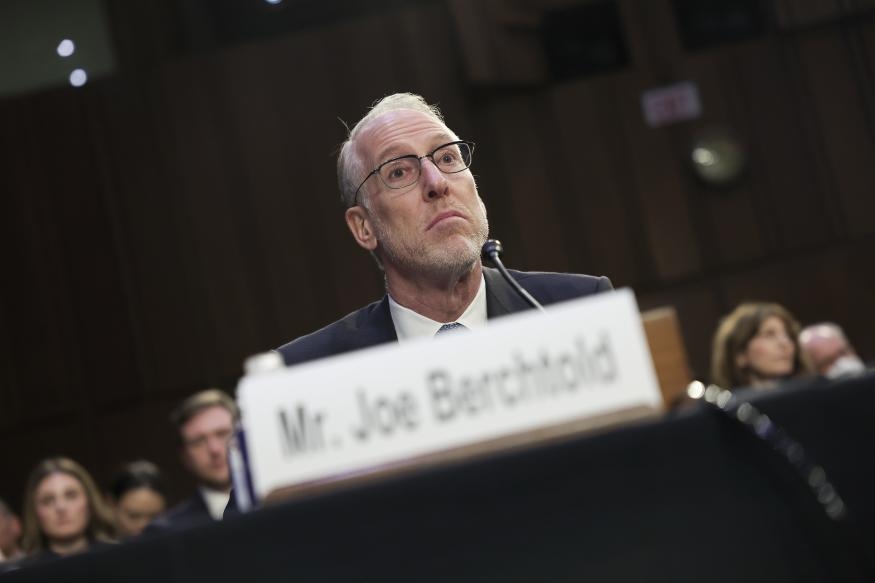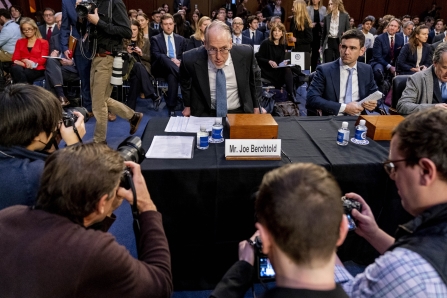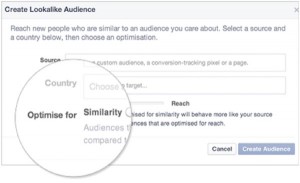Ticketmaster knows it has a bot problem, but it wants Congress to fix it

In November, millions of Taylor Swift fans logged on to Ticketmaster hoping to scoop up tickets to arguably the most-anticipated tour of 2023. When the time came, the site crashed, rendering verified users unable to purchase admission to the singer’s first slate of shows in five years. In the immediate aftermath, Ticketmaster parent company Live Nation explained that while 1.5 million people had signed up as legit customers, over 14 million hit the site when tickets went on sale — many of which were bots.
Live Nation president and CFO Joe Berchtold told the Senate Judiciary Comittee on Tuesday that the company “learned valuable lessons” from the Swift debacle. “In hindsight there are several things we could have done better – including staggering the sales over a longer period of time and doing a better job setting fan expectations for getting tickets,” he said.
Berchtold told Senators that Ticketmaster experienced three times more bot traffic that day than it ever had before, and that a cyberattack on the company’s verified fan password servers exacerbated the problem. He explained that despite investing over $1 billion in ticketing systems since the Live Nation/Ticketmaster merger, mostly to combat fraud and scalping, the company has a massive bot problem that it can’t get a handle on.
“We also need to recognize how industrial scalpers breaking the law using bots and cyberattacks to try to unfairly gain tickets contributes to an awful consumer experience,” Berchtold said. What he called “industrialized scalping” led to the Taylor Swift fiasco, he explained, but the executive wants Congress to act to prevent similar incidents from happening in the future.
Berchtold called for Congress to expand the scope of the BOTS Act to “increase enforcement.” Signed into law in 2016, the legislation makes it illegal to bypass a website’s security or tech features as a means of purchasing tickets. It also makes it illegal to resell tickets obtained via those methods. Specifically, Berchtold called for banning the use of fraudulent URLs and stopping the resale of tickets before their general on-sale date.

The law leaves enforcement with the FTC and states, a topic Republican Senator Marsha Blackburn discussed with Berchtold in some of the most pointed questioning of the session. “You told me (April 19, 2023) you block about 90 percent of the bot attacks that you get, and that’s a failing grade,” she said. “There ought to be people you can get some good advice from because our critical infrastructure in this country gets bot attacks every single day. They have figured it out, but you guys haven’t?”
Blackburn admitted that the FTC has only taken action on the law once, and that the lack of widespread action was “unacceptable.” She pledged to do something about the lack of enforcement through the dealings of the Senate Commerce Committee, where she is also a member.
“The FTC has the authority, but you have a responsibility to consumers,” she continued. “I agree they are not exercising it, but how many times have you called the FTC and said ‘we need your help?'”
Berchtold explained that Live Nation had only contacted the FTC once about suspected bot activity — in late 2019 and early 2020. He said that was the only time they had necessary information to work with the commission in order to get a prosecution. “These are not bots that are trying to break into our system, they are trying to impersonate people… putting true fans at a disadvantage,” Berchtold told Blackburn when asked why Live Nation has such a hard time recognizing bots.
In regards to the BOTS Act, Democratic Senator Richard Blumenthal told Berchtold there are already legal options available to the company to go after scalpers using bots to procure tickets.
“You have unlimited power to go to court,” Blumenthal said. “Your approach seems to be that everyone else is responsible here — not us.”

(9)
Report Post






